Search
Search Results
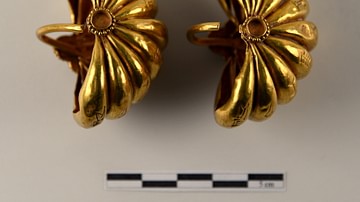
Image
A Pair of Gold Earrings from Ur III
These are the lower surfaces of both earrings. The free end of the golden arch can be clearly seen. A pair of gold earrings, 24 carats, approximately 48 grams. Gift from Shulgi to a chief of servants of a temple. The name of the goddess Mammetum...
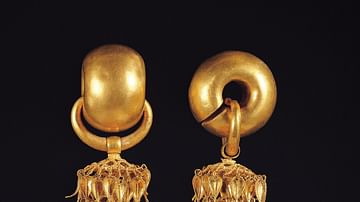
Image
Silla Gold Earrings, National Treasure 52
5-6th century CE gold earrings from the Silla Kingdom (57 BCE - 668 CE) of south-eastern Korea. From a tomb in the Gyeongju area. National Treasure No. 52. (National Museum of Korea, Seoul, South Korea)
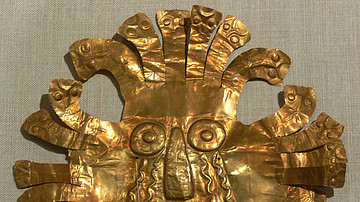
Image
Nazca Gold Mask
A beaten gold mask from the Nazca civilization of Peru, 200 BCE-500 CE. 18.4 x 20.5 cm. The mask may represent a shaman in transformational pose, a common motif in Nazca art. An alternative interpretation is that it represents the weeping...
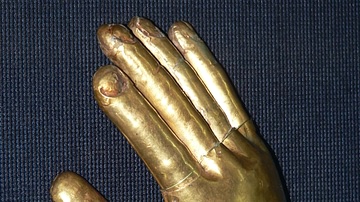
Image
Lambayeque Gold Glove
A gold glove from a tomb of the Lambayeque Civilization of northern Peru, 900-1375 CE. (Museo Oro del Perú y Armas del Mundo, Lima, Peru)
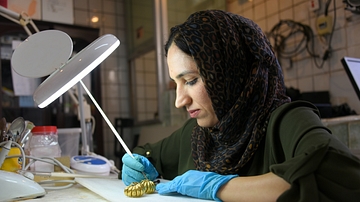
Image
Curator with Pair of Gold Earrings from Ur III
A curator is doing a routine and regular preservation work on a pair of gold earrings at the lab of the Sulaymaniyah Museum of Iraqi Kurdistan. October 18, 2017; exclusive photo. Ur III Period, reign of Shulgi, 2093-2046 BCE. Probably from...
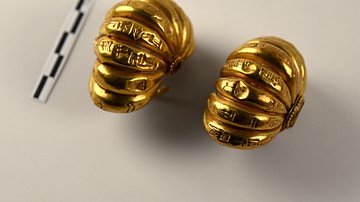
Image
Mesopotamian Gold Earrings, Ur III
Both earrings are placed in a mirror-image position, with the lower surfaces facing each other. Each earring is composed of nine lunar-shaped segments forming a flattened half- ball. The cuneiform signs run vertically from above downward...
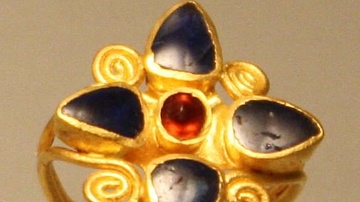
Image
Roman Gold & Saphire Ring
Roman gold and saphire ring, second half of the 2nd century CE. The ring has a garnet centre stone. From an unidentified marble sarcophagus in Rome. (Palazzo Massimo, Rome)

Image
Gold Olive wreath
4th century BCE gold Olive wreath from Macedonia, both a religious symbol and indicator of social position and power (Archaeological Museum, Thessaloniki, Greece)
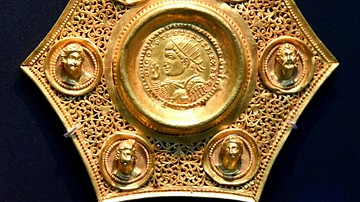
Image
Gold Coin Pendant of Constantine
Gold pendant set with a coin of Constantine the Great, c 320s CE. The British Museum, London. The pendant is made in a pierced metalwork technique popular in fine jewellery of the time. The obverse of the coin depicts a bust of Constantine...
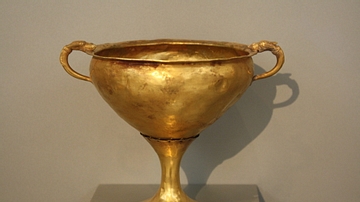
Image
Mycenaean Gold Cup
A gold Mycenaean cup with handles ending in dog's heads. 15th century BCE from Grave circle A, Mycenae. (National Archaeological Museum, Athens)